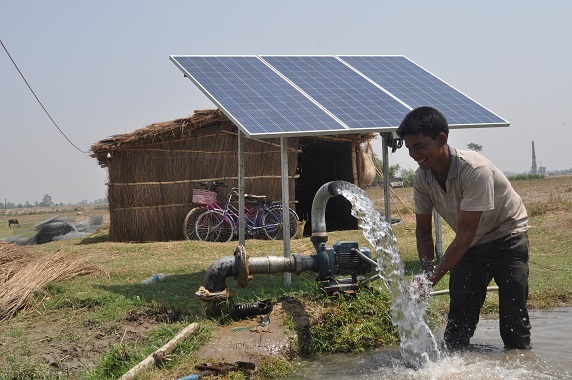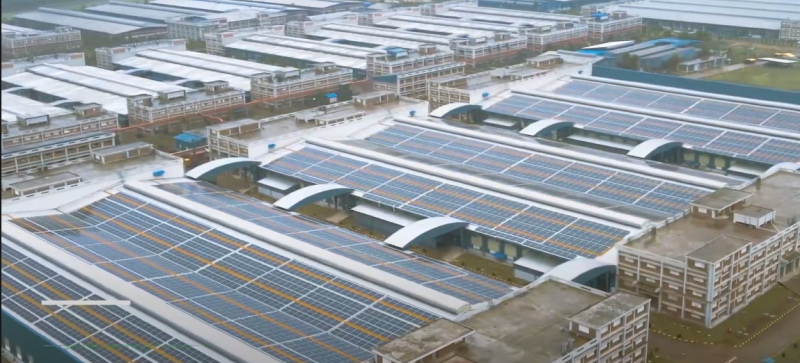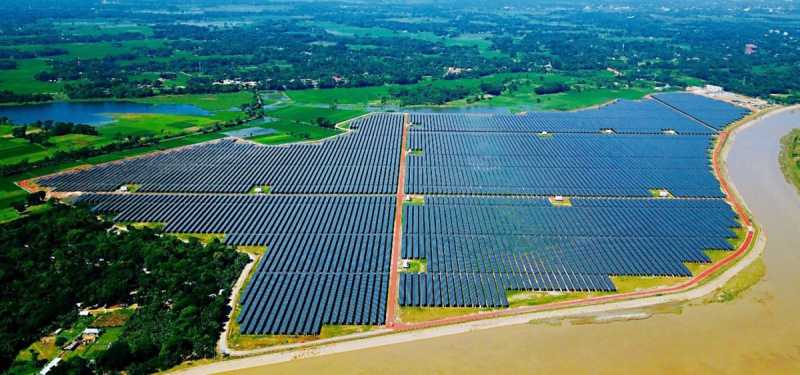Solar Panels for Rural Development
Published at - October 14, 2021
7 min read
Electricity, needless to say, makes our day to day life easier by reducing our labour, gives us comfort by manipulating natural phenomena and enhances our production by giving us the key to the modern pieces of machinery. Unfortunately, the rural areas of third world countries like ours are often deprived of modern blessings like electricity. The facilities that enable the production, supply and distribution of electric energy are scarce in rural areas. Therefore, unlike urban areas, production in rural areas are often penurious. Moreover, because of the scarcity of electricity often our rural areas lag behind in education. Modern media that are often vital for knowledge of the world outside never penetrates the rural darkness because it lacks electricity.
Unlike urban people, rural people lead a very simple life. They don’t need much electricity to survive. A little electricity can make all the differences in their progress. As they need less electricity, renewable energy like solar power can be a great help for them. Solar power is easy to install and maintain. It neither rely on the national grid nor does it needs constant billing. Therefore, solar panels can be the real-life Genie for the rural people in their development.
What Benefit Can Solar Energy Add to Rural Life?
Solar Energy can act as an instrument to rural development by adding a lot of benefits to the life of the rural people. These benefits are manyfold. They are-
- Increased Efficiency in Production: Modern machinery increases the efficiency of production. As rural society is generally egalitarian, farmers will be benefitted from streamlined modern techniques such as irrigation, crop processing, and food preservation. Once these were done manually and often faced failures, which may reduce efficiency in production. Electricity brought by solar energy may increase efficiency in production for rural people.
- Productivity of People: Electric energy increases the productivity of people. Rural people are hard-working and healthy. However, due to their manual labour, they produce less and earn less. These reduce the productivity of the people. Electricity makes day to day life easier and production more efficient. Therefore, solar energy may work as an instrument to increase the productivity of rural people.
- Comfort and Health to life: Electricity can bring comfort to the life of rural people. Poor but hard-working people of our rural areas are often deprived of the comfort which can be brought by electric fan and light, as they are either deprived of electric energy or are too poor to afford the energy. As a result, they suffer. Solar panels can end their suffering by adding some comfort to their lives. Also, solar energy will be beneficial to their health. Rural people, deprived of electric energy, can rarely preserve their food. Not every day, they can serve freshly cooked food on their table. As a result, they rely on foods cooked long ago which may become stale and musty. These foods may be hazardous to the health. Also, fruits, vegetables, fishes and meats, if not preserved in the refrigerator, rots in a very small time. Doubtlessly, rotten foods are hazardous to health. A refrigerator may solve these problems and add to the health of the rural people making them more healthy and productive. Also, a village enriched with solar energy can afford modern health care if the local doctors can implicate the solar energy in their local chambers. The availability of electricity has the potential to significantly improve the quality of healthcare delivered. Improved illumination allows patients to come in for treatment for longer periods of time. Refrigerators can be used to store vaccines and blood, both of which are extremely valuable. Sterilization methods will be upgraded, and high-tech instruments such as x-rays and ultrasound scanners will be installed to give doctors and nurses the tools they need to accomplish their jobs.
- Saving Costs: Rural people are not very rich. They find it difficult to bear the cost of the electricity from the national grid. Also, where there is no electricity, village people rely on fuels like Kerosine to enlight their houses. Both the cost of energy from the national grid and the energy of kerosine can be saved by installing solar panels as a supporting system. Research conducted in India by Tarujyoti Buragohain confirms the cost-saving nature of solar energy in various villages of India. One of the cost-saving technology is the solar cooker. Unfortunately, most Third World rural populations cannot afford the materials used in modern designs. Solar cookers might, in theory, help to alleviate wood supply issues by providing a year's worth of cooking energy for one person from an area of one or two square yards.
- Education: Electricity enables long-term economic and social development. The first is through improved educational achievement. Students who previously had to study when the sun was shining can now study early in the morning or late at night under the illumination of LEDs. In Kenya, for example, interviews with instructors found that having access to light has allowed for extra hours of teaching earlier and later in the day to cover content that was not sufficiently covered during normal hours. However, power from the national grid is costly and often the rural people can’t afford it. The solar panel can be a great solution for this. Research in Jharkhand, Meghalaya and Assam shows that, after the arrival of solar energy, people spend more time in the evening teaching and studying.
- Connectivity with the rest of the World: Our villages are isolated and detached from the rest of the world. Especially, villages situated in remote areas lack modern media. In rare cases, the daily newspaper reaches the hand of the wealthy and the educated population of a village, but most of the people are deprived of this opportunity. Moreover, the rural people are not literate enough to read the newspaper. The only media that penetrate the rural area is the radio. Rural people, in most cases, cannot use cell phones as cell phone demand electric energy. As the world is getting globalized day by day and job opportunities increasing, it’s unfortunate that the people of the rural areas are often absent in the modern job market just because they lack electric energy. Television, a medium that informs as well as entertains people are non-existent in many villages. Electricity generated from solar power, cheap and simple, can change this scenario drastically.
- Livelihood and Increase in Income: Solar house systems are regarded as excellent because they provide numerous exterior benefits. It can assist households in generating new sources of income. According to a survey, just two to three per cent of those who received solar light systems said that new forms of money generation activities came up as a result of the installation. As a result, the average monthly household income in Jharkhand has increased by 5%. Electricity distribution projects generate a lot of jobs and help people get out of poverty. India, for example, has set a goal of installing 175 GW of sustainable energy by 2022 in order to promote electrification across the country. To achieve these lofty targets, an estimated 300,000 new employment will be required. We can implicate policies like this to develop the villages in Bangladesh. Solar energy enables people to use new technologies like cell phones or mini computers. It makes them technologically skilled, thus opening the modern job market for them.

- Safety Measures: A dark place is often unsecured. Darkness encourages crimes like theft and robbery. Electricity introduces the implementation of street lighting, lit road signs. Therefore, the security of the village life greatly increases.
Almost two billion people in developing nations lack access to electricity, accounting for one-third of the global population. For millions of rural families, fuelwood, agricultural leftovers, human power, and draught animals remain the principal energy sources. These are expensive and obviously not the best options when you have solar energy in hand. Therefore, solar energy, as an instrument of rural development, should be encouraged more.


